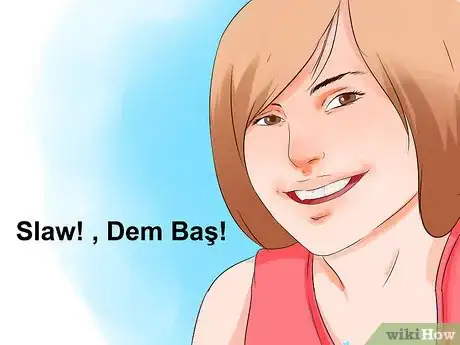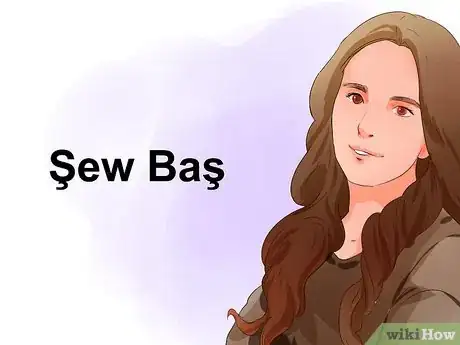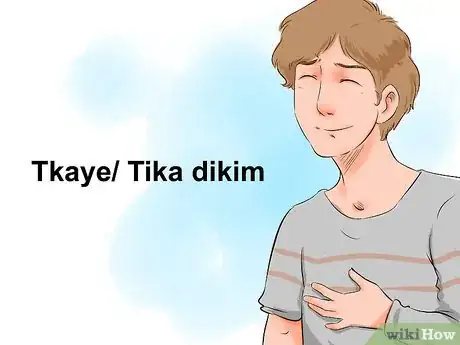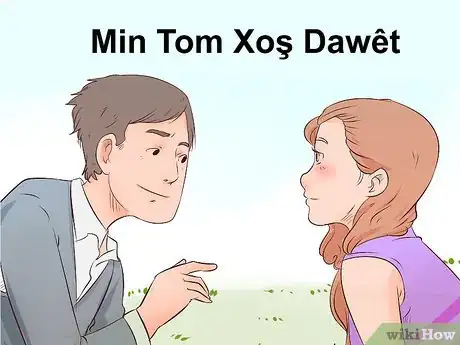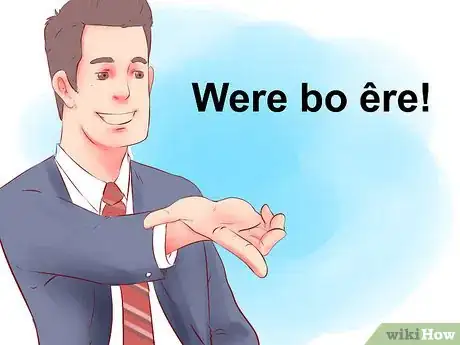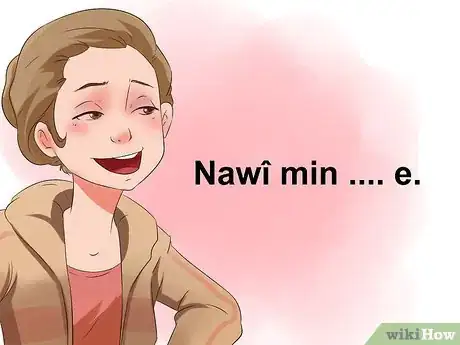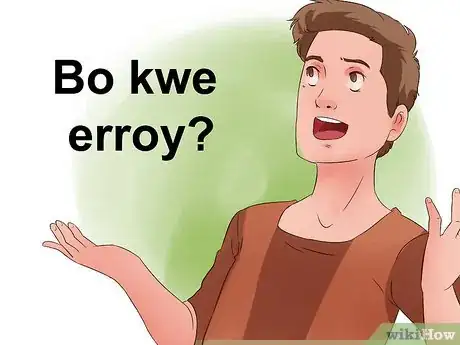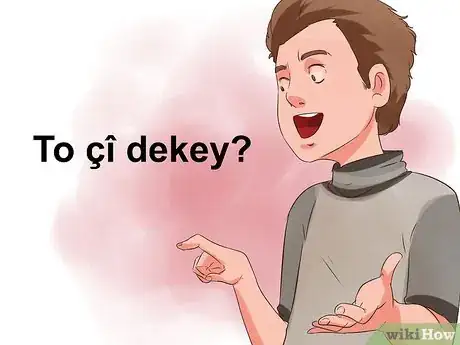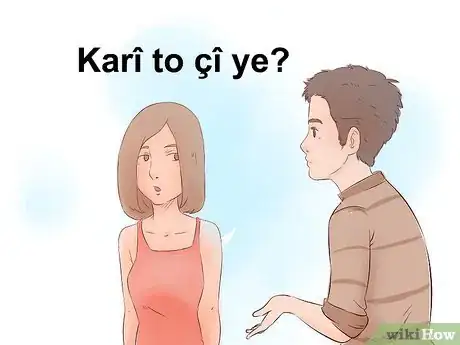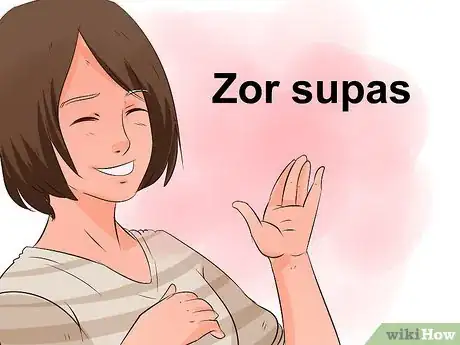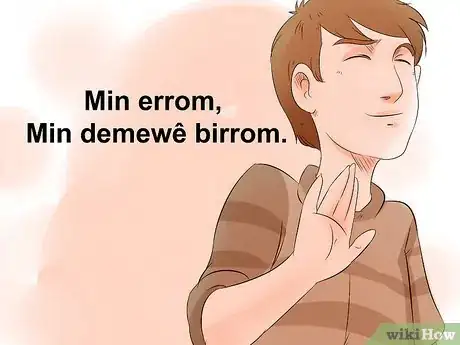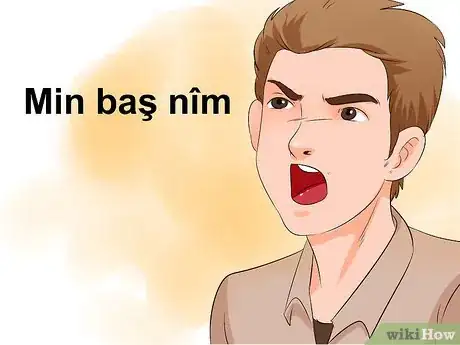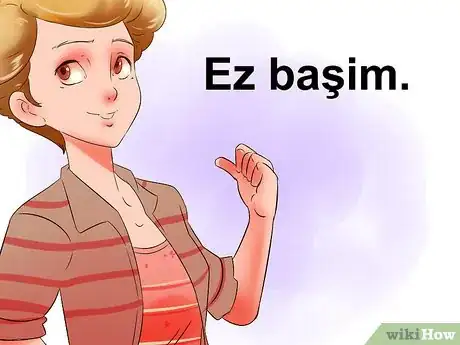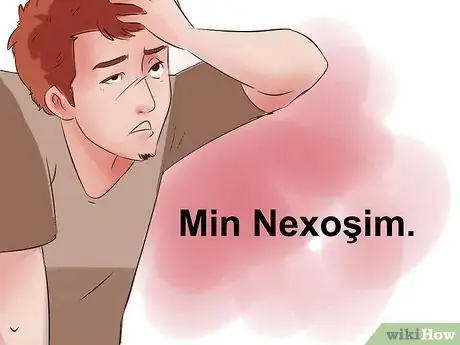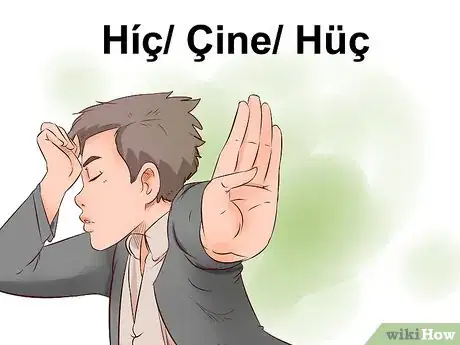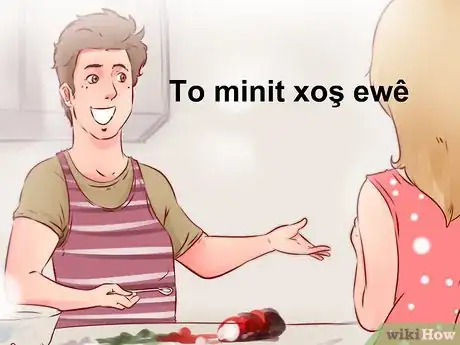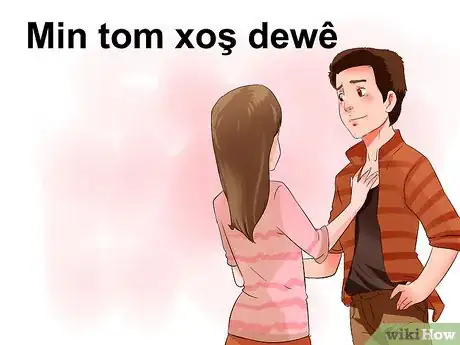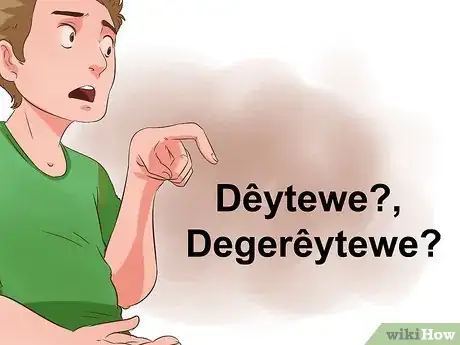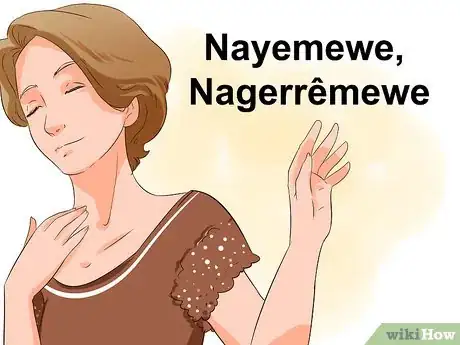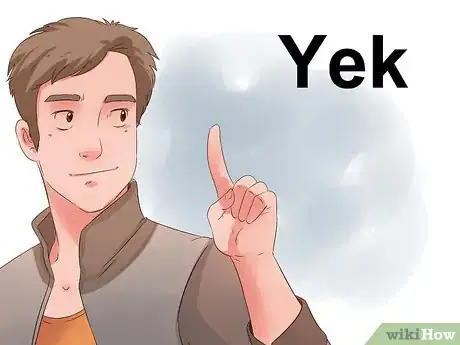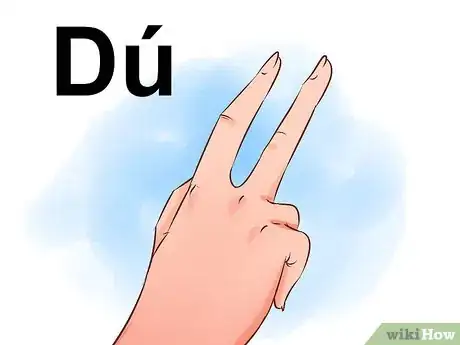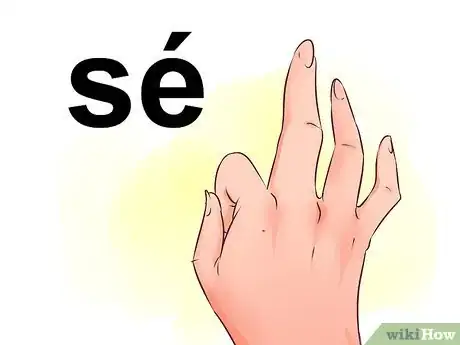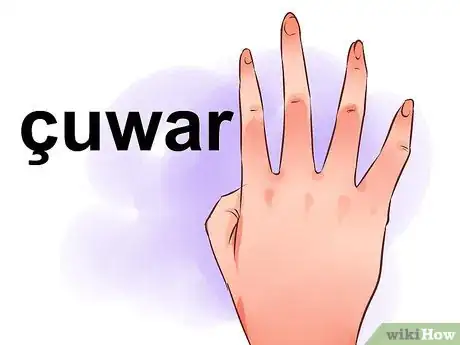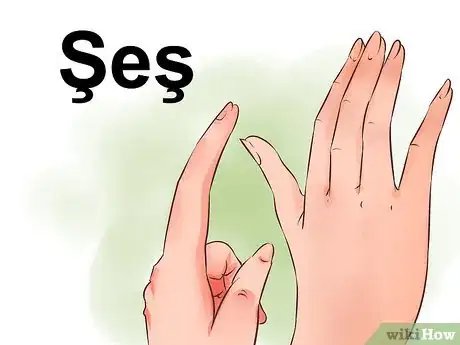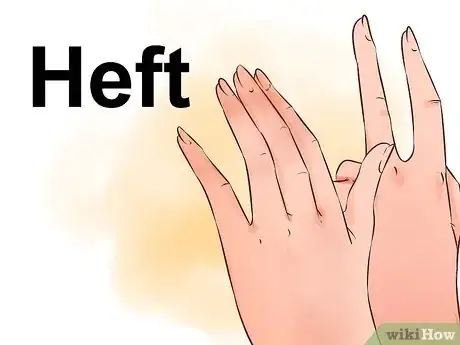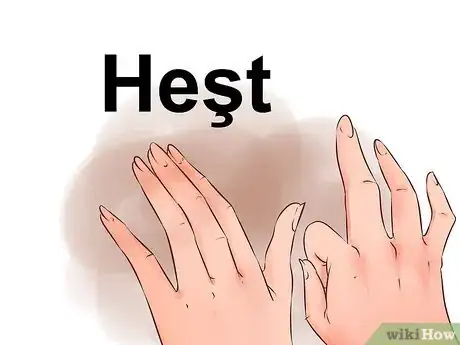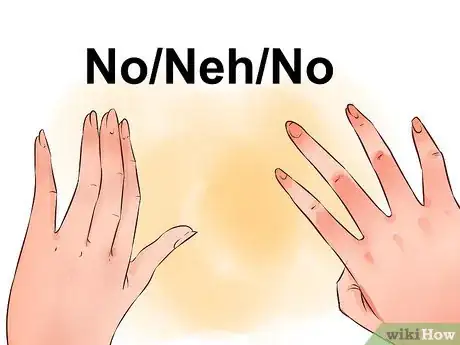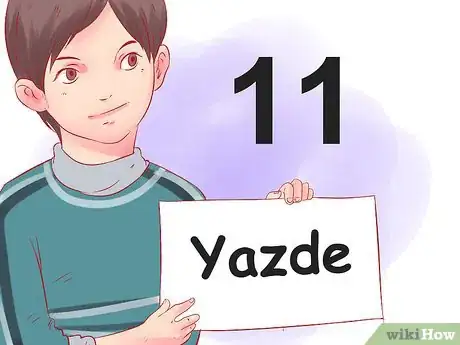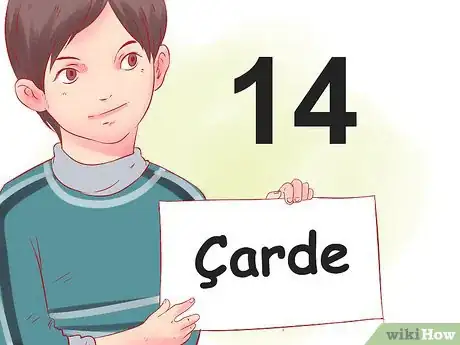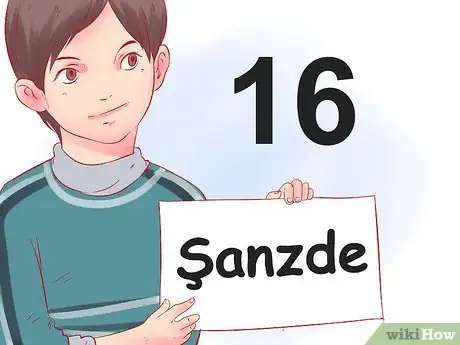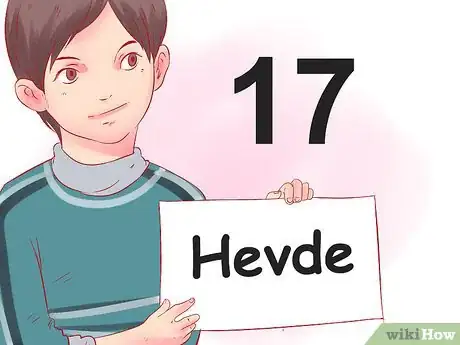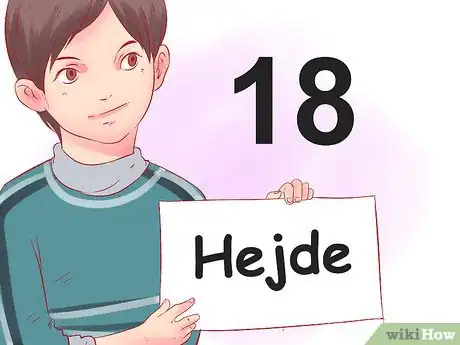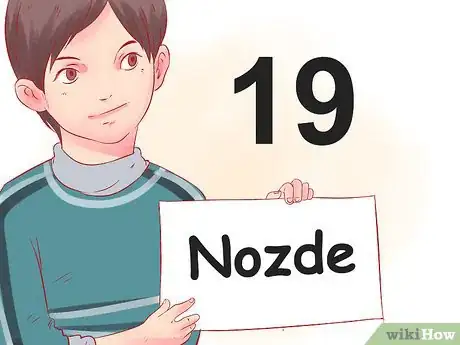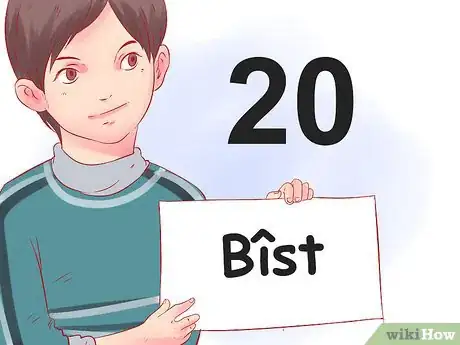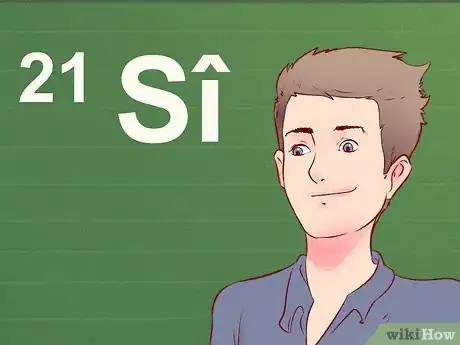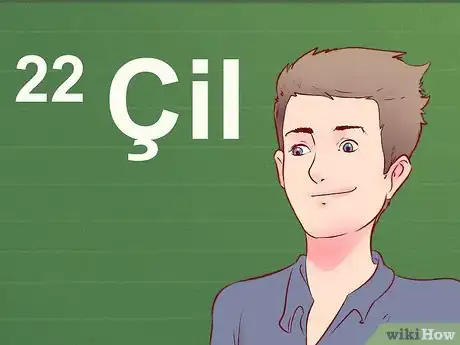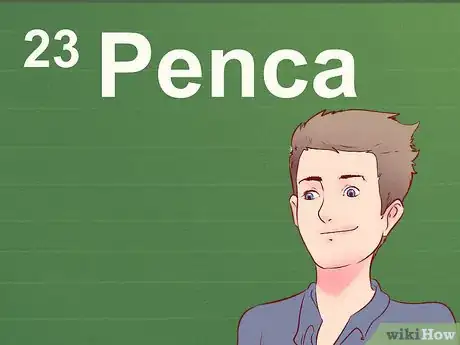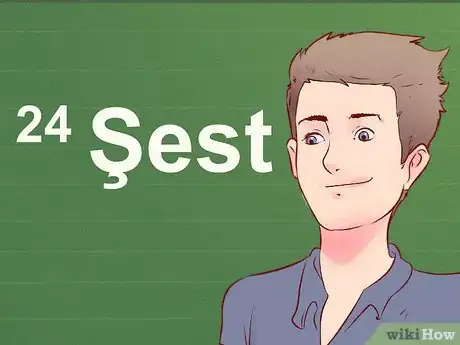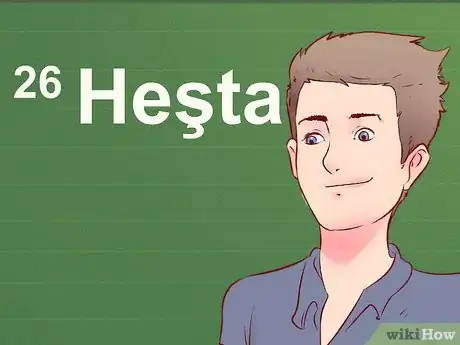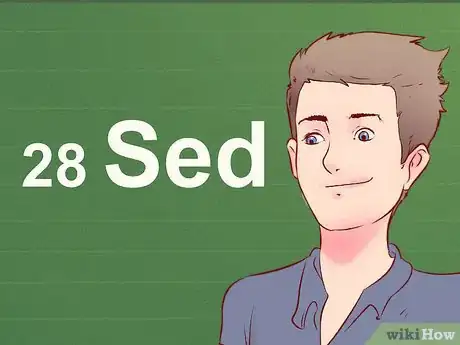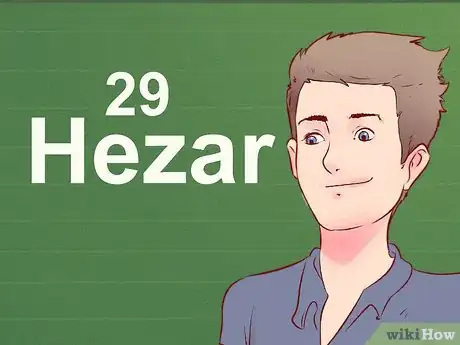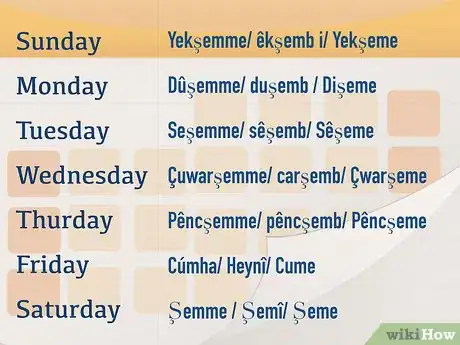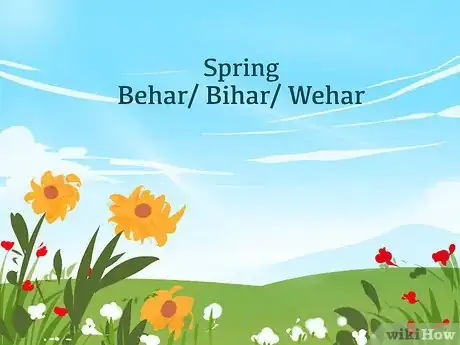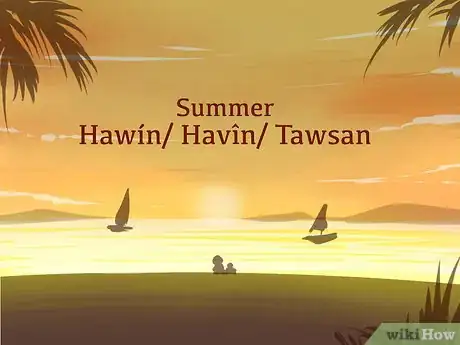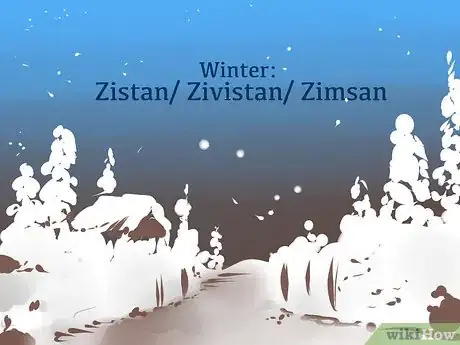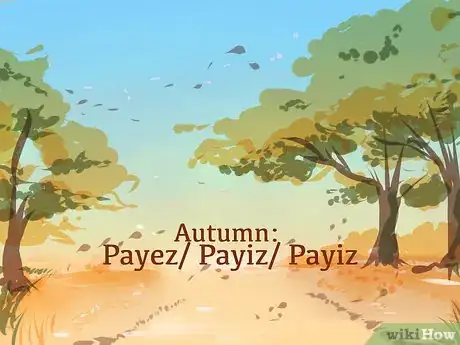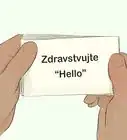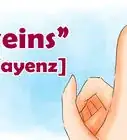wikiHow is a “wiki,” similar to Wikipedia, which means that many of our articles are co-written by multiple authors. To create this article, 52 people, some anonymous, worked to edit and improve it over time.
wikiHow marks an article as reader-approved once it receives enough positive feedback. In this case, 92% of readers who voted found the article helpful, earning it our reader-approved status.
This article has been viewed 378,651 times.
Learn more...
Kurdistan is now split between Iran, Iraq, Turkey and Syria. Kurdish language is spoken in three main dialects: Kurmanji (in West and North of Kurdistan), Sorani (in East and South of Kurdistan) and Kalhuri (in East and South of Kurdistan). They all belong to the Iranian language family. Even if you don't speak a word of Kurdish, it will only take a few minutes to learn some basic phrases that will help you communicate. The phrases below are typically Sorani. The Kurmanji is the 2nd and the Kalhuri is the 3rd translation.[1] X Research source
Steps
Greetings
-
1Below are some greetings.[2] X Research source
- Say Hello : Slaw! , Dem Baş!/ Silav/ Silam/choni/dam bash
- Say How are you: Chonî? / Tu başî?/ Xasîd?, Xweşîd?/Chakid?
- Say I'm fine: Çakim , Xasim/ başim/ Xasim/bashm
- Say Thank you: Supas/ Spas/ Spas/dast xosh
- Say Yes: balê /arê / Erî
- Say No: Ne / Na/ Ne/naxer
- Say I : Mn / Ez/ Me
- Say You(singular): To / Tu/ To
- Say He/She: Aw/ Ewe/ Ewe, Üwe
- Say We : Éme / Em/ Éme
- Say You(Plural): Éwe / Hun/ Éwe
- Say They: Ewan
- Say Good morning: Beyanî baş/ spêde baş/ Şewekî Xweş
- Say Good Afternoon: Nîwerro baş/
- Say Good Evening: Éwar baş /Evar baş/ Éware Xweş
- Say Good Night: Şew baş/ Şev baş/ Şew Xweş/shaw shahd
- Say Goodbye: Xwa-legell(Xwa= God / Legell= With) in other words God be with you./ Mal Ava/ Binîşîte Xweş
Some Phrases
-
1Goodnight: Şew Baş /Şev baş/ Şew Xweş[3] X Research source
-
2please: Tkaye/ Tika dikim[4] X Research source
-
3do you love me: To minit xoş dawêt?/ Tu hez ji min dikî?
-
4I Love You: Min Tom Xoş Dawêt/ Ez hez ji te dikim[5] X Research source
-
5Come here! : Were bo êre!/ were vêrê![6] X Research source
-
6Say my name is....: Nawî min .... e./ Navê min....e/nawm....
-
7Where are you going?: Bo kwe erroy?/ Tu kîve diçî?
-
8what are you doing? :To çî dekey? To xerîkî çît?/ Tu çi diki?
-
9I'm going to work : Eçim bo ser kar/eacm bo eish
-
10When are you coming back?/when are you turning around? : Key degerrîtewe? / Key dêytewe?/ Tu dê kengî vegerî?
-
11I'm coming back : Xerîkim dêmewe., Ewe hatmewe./ ez zivrim/ Le pisa tîyemew.
-
12What's your job? : Karî to çî ye?/ Karê te çîye?
-
13Thank you very much: Zor supas/ Gelek spas/zor supas bo tu
-
14I am going: Min errom, Min demewê birrom./ Ezê çim.
-
15I'm not ok : Min baş nîm/ Ez ne başim/ Me Xwes Nîyim
-
16I'm ok : (Min) başim./ Ez başim.
-
17I'm sick: Min Nexoşim./ Ez nexweşim.
-
18What is it? : (Ewe) çî ye?/ Eve çîye?/ Ewe çes?
-
19Nothing : Híç/ Çine/ Hüç
-
20You love me: To minit xoş ewê/ tu hez ji min di keyi./ Tu le min xweşit tîyeêd.
-
21I love you: Min tom xoş dewê/ ez hez ji te dikem/ Min le tu xweşim tîyeêd.
-
22I miss you: Bîrit ekem/ min bîrya te kirye/ Hürit kirdime
-
23Are you coming back? : Dêytewe?, Degerêytewe?/ tu ye bi zivri?/ tîyeêdew?, Gerrêdew?
-
24I'm not coming back : Nayemewe, Nagerrêmewe/ ez na zivrim/ Nyetîyemew, Nyegerrêmew
Numbers (Jimaran) 1-20
-
1Yek[7] X Research source
-
2Dú[8] X Research source
-
3sé
-
4çuwar/çar
-
5pênc
-
6Şeş
-
7Heft
-
8Heşt
-
9No/Neh/No
-
10De/Deh/De
-
11Yazde/ Yazde/ Yanze
-
12Dvazde/ Dvazde/ Dwanze
-
13Syanze/ Sêzde/ Sênze
-
14Çarde/ Çarde/ Çwarde
-
15Panzde/ Panzde/ Panze
-
16Şanzde/ Şanzde/ Şanze
-
17Hevde
-
18Hejde
-
19Nozde
-
20Bîst/ Bîst/ Bîs
-
21Sî
-
22Çil
-
23Penca/penci
-
24Şest/ Şest/ Şes
-
25Hefta/hafte
-
26Heşta/hashte
-
27Newed/nawet/nawe
-
28Sed/
-
29Hezar
DAYS OF THE WEEK
Seasons Of The Year
Community Q&A
-
QuestionWhat does "nawala" mean?
 Community AnswerIt basically means 'no', but 'ala' refers to God, so it kind of means 'no, I swear to God'.
Community AnswerIt basically means 'no', but 'ala' refers to God, so it kind of means 'no, I swear to God'. -
QuestionWhat is "Chau zaq" in English?
 Community AnswerThere's not a direct translation; it means "wide eyes," and usually means you've been annoying or done something wrong.
Community AnswerThere's not a direct translation; it means "wide eyes," and usually means you've been annoying or done something wrong. -
QuestionHow do I say the phrases, "Wash your dishes after cooking and after eating" and "House chores have to be done" in Kurdish?
 Community Answer"Qap'akantan bshon pash shiw lenan u khwardn" and "Dabe ishi male anjam bdre."
Community Answer"Qap'akantan bshon pash shiw lenan u khwardn" and "Dabe ishi male anjam bdre."
You Might Also Like
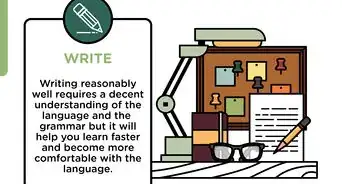
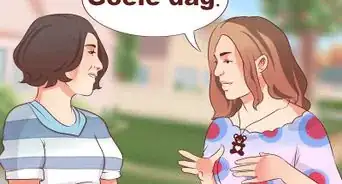
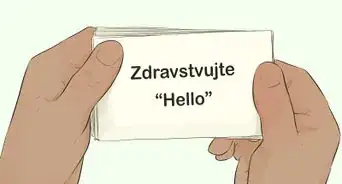
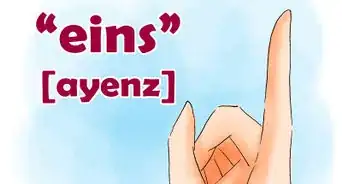
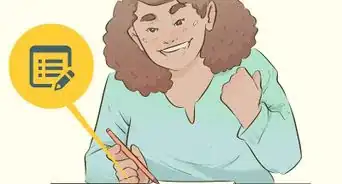
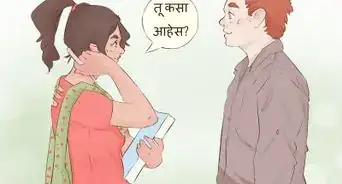
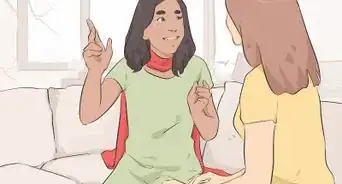
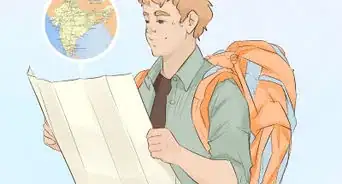
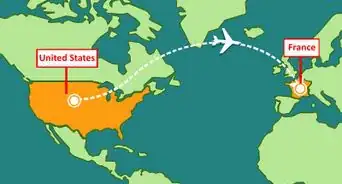
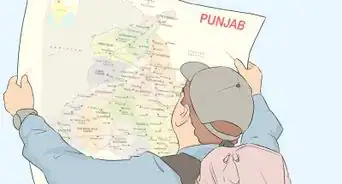
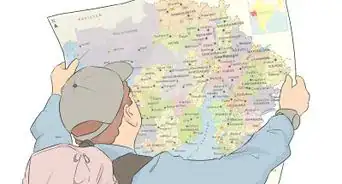
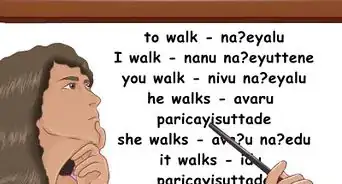
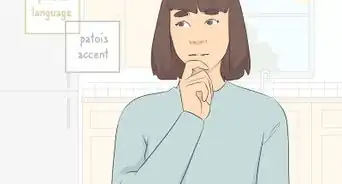
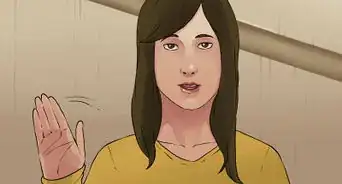
References
- ↑ https://thekurdishproject.org/history-and-culture/kurdish-culture/kurdish-language/
- ↑ https://www.omniglot.com/language/phrases/kurdish.php
- ↑ https://www.youtube.com/watch?v=mwPoqbm-O0g
- ↑ https://www.youtube.com/watch?v=mwPoqbm-O0g
- ↑ https://www.youtube.com/watch?v=HzafvkxAGEI
- ↑ https://www.youtube.com/watch?v=HzafvkxAGEI
- ↑ https://www.youtube.com/watch?v=HzafvkxAGEI
- ↑ https://www.youtube.com/watch?v=HzafvkxAGEI
